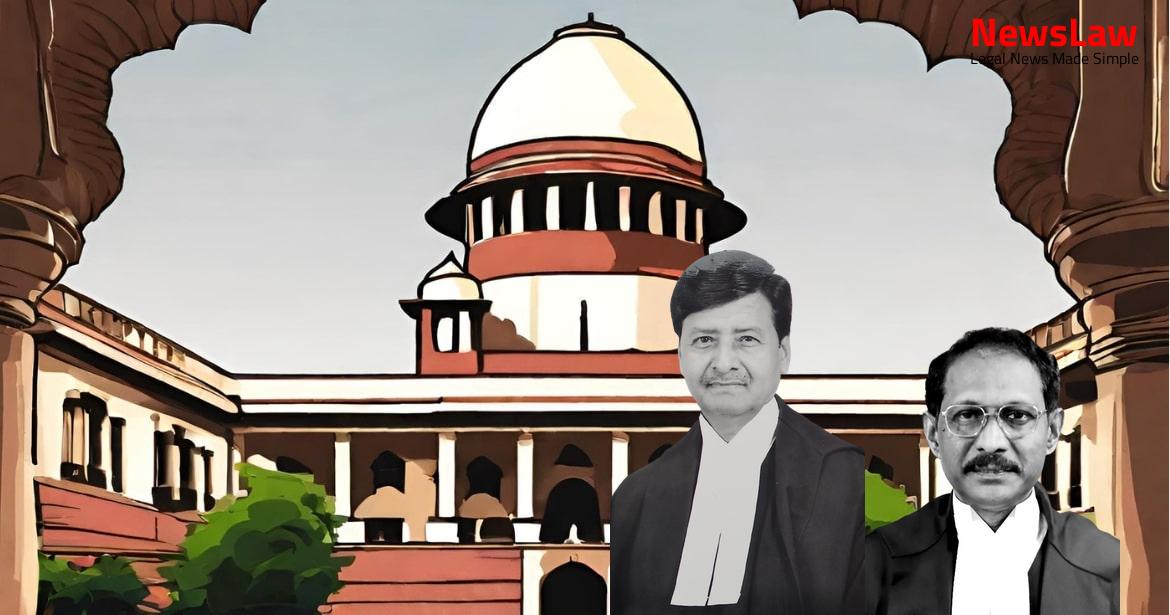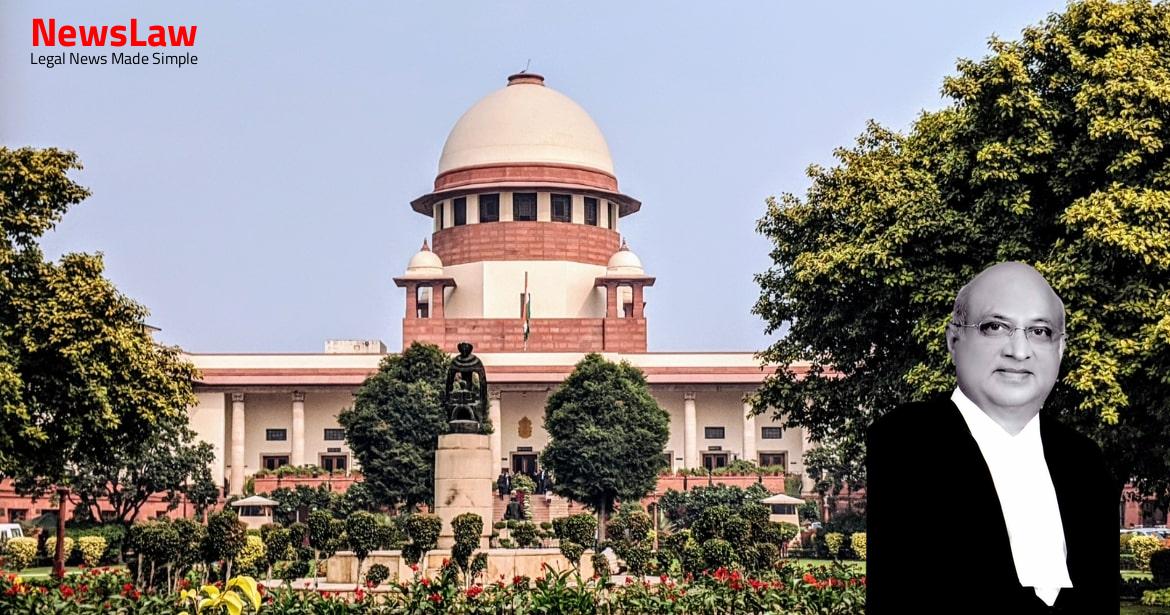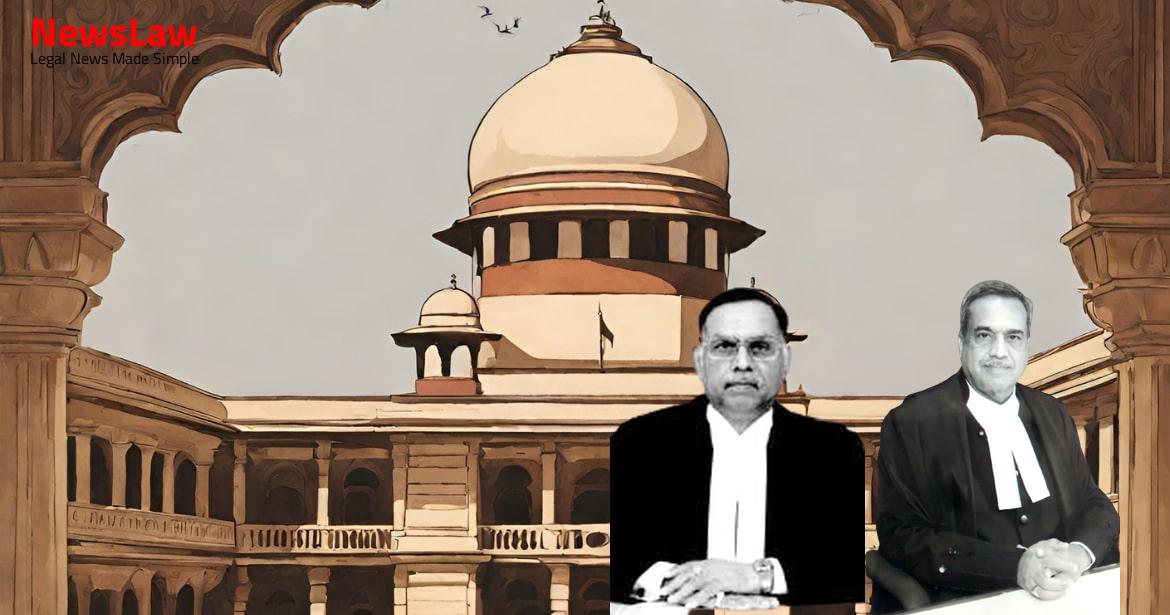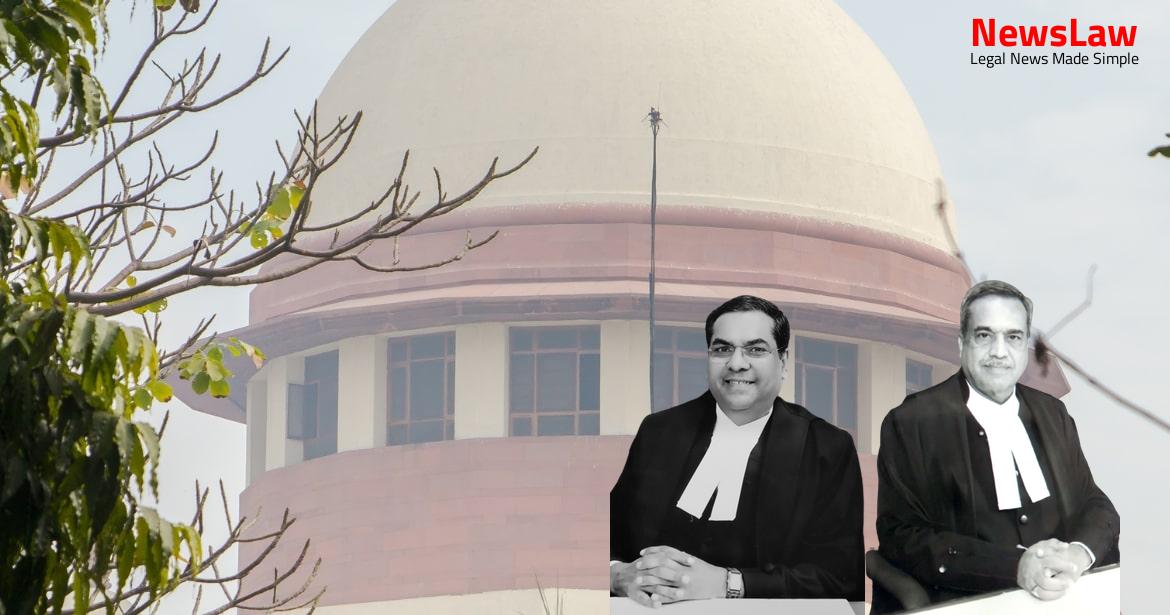Explore the crucial aspect of providing detenus with legible documents for effective representation in legal proceedings. The court’s legal analysis emphasizes the fundamental right to make representations and the implications of supplying illegible documents. Follow the discussion on the importance of ensuring transparency and fairness in detention orders.
Facts
- The right to make a representation is a fundamental right.
- Non-supply of legible copies of documents relied upon by the authorities in passing the order of detention is a violation of Article 22(5) of the Constitution.
- Cited judgments of the Court in cases like Smt. Dharmista Bhagat v. State of Karnataka, Manjit Singh Grewal v. Union of India, Mehrunissa v. State of Maharashtra, and Bhupinder Singh v. Union of India.
- Leave was granted in the instant appeals against the decision of the High Court of Manipur setting aside the order of detention.
- The documents in the grounds of detention were found to be not readable, thus preventing an effective representation.
- Ms. Prerna Singh appeared as Amicus Curiae in both appeals and assisted the Court.
- Similar challenges regarding the non-supply of legible documents were raised in Writ Petition (Crl.) No.15 of 2021 before the High Court.
- Despite notice being issued, no one appeared on behalf of respondent no.1 before the Court.
- The detenu was not supplied with legible copies of documents relied upon by the detaining authority while passing the order of detention, affecting the detenu’s right to make an effective representation.
- The counter affidavit claimed that all legible documents forming the basis of the grounds of detention were furnished to the detenu, and the detenu could have requested any relevant document from the Detaining Authority.
- The Division Bench of the High Court relied on previous judgments of the Court and set aside the order of detention issued on 17 May 2021 by the Special Secretary (Home), Government of Manipur.
- Respondent no.1 claimed that the documents forming the basis of the grounds of detention were illegible and blurred, making it difficult for effective representation before the detaining authority.
- Respondent no.1 was released following the order of the High Court on 28th October 2021, and the one-year detention period had also expired.
Also Read: From Nominee to Disqualified: Supreme Court Scrutinizes Age Evidence, Declares Election Invalid
Arguments
- The petitioner did not mention any request for legible copies of documents in her representation submitted to the detaining authority.
- Supply of legible copies of documents is essential for making an effective representation, as per settled law.
- The right to make a representation includes having all the necessary information for an effective representation.
- Interference by the High Court in setting aside the detention order is not legally sustainable.
- All material relied upon by the detaining authority must be supplied to the detenu for effective representation, regardless of their prior knowledge.
- Preventive detention laws must have minimum safeguards to prevent misuse and oppression by authorities.
- The denial of legible copies of documents for effective representation violates Article 22(5) of the Constitution.
- The failure to raise the issue of illegible documents before the detaining authority does not negate the fundamental right of the detenu.
Analysis
- The detenu has the right to request and receive legible copies of documents to make an effective representation.
- Supplying illegible or blurred copies of documents to the detenu violates Article 22(5) of the Constitution.
- The detaining authority must provide copies of documents relied upon for detention to enable an effective representation.
- Failure to supply readable documents hinders the detenu’s ability to defend themselves, rendering the detention order illegal.
- The detenu’s right to make representation is a fundamental right under Article 22(5) of the Constitution.
- The date of supplying legible copies of documents to the detenu is crucial for ensuring their right to effective representation.
- The High Court affirmed the importance of providing clear and complete documents for the detenu’s defense.
- The right to make a representation is a fundamental right.
- Reasonable expedition in making a representation will depend on the facts of each case.
- Non-supply of legible copies of documents relied upon by the detaining authority can have legal implications.
- Counsel relied on the judgment in Union of India v. Ranu Bhandari
- The judgment was referenced in paras 27 and 31
- Para 27 of the judgment was quoted
- Failure to raise a certain issue before the detaining authority does not strip the detenu of the right to challenge the order of detention under Article 226 of the Constitution of India.
- Personal liberty and individual freedom cannot be arbitrarily taken away without following the legal procedure.
- If the detenu can prove that the grounds of detention are not based on sufficient evidence, it renders the detention order illegal.
- The detenu’s fundamental right to make effective representation under Article 22(5) entitles them to receive legible copies of documents relied upon by the detaining authority.
- In this case, the detenu was not denied legible copies of documents for effective representation, as confirmed by the uncontroverted facts presented in the writ petition before the High Court.
Also Read: Exemption from Enhanced Power Tariff: Withdrawal of Concession based on Date of Energisation
Decision
- The appeals were dismissed.
- Pending applications were disposed of.
Case Title: THE STATE OF MANIPUR Vs. BUYAMAYUM ABDUL HANAN @ ANAND (2022 INSC 1117)
Case Number: Crl.A. No.-001819-001819 / 2022



